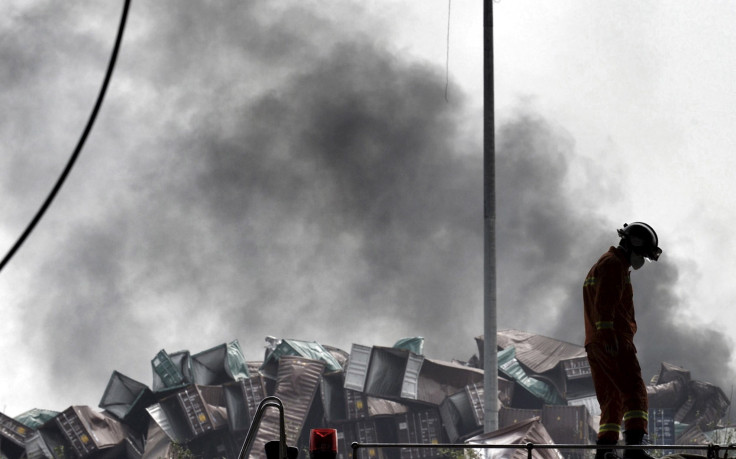Tianjin Blasts: Chinese Government Cracks Down On 'Online Rumors' As Death Toll Rises

China's Internet regulator ratcheted up its crackdown on what state media dubbed “online rumors” Saturday, in the aftermath of this week's explosions in Tianjin, as the death toll from the blasts rose to 112.
In a statement released late Saturday, the Cyberspace Administration of China (CAC) accused 50 websites of creating panic by publishing unverified information or letting users spread groundless rumors, state run news agency Xinhua reported.
Authorities say the websites in question circulated rumors that the blasts had “killed at least 1,000 people," that "shopping malls in Tianjin got looted" and that there would be a "leadership change in [the] Tianjin government."
The CAC said rumors of this kind constituted “negative influences,” and it it shut down and revoked the licenses of 18 websites, and suspended the operation of another 32.
The crackdown came as state media confirmed that the official death toll from the blasts had risen to 112 on Sunday, 95 people remaining missing, including 85 firefighters.
As of Sunday morning, more than 50 people have been rescued in Tianjin, city government spokesman Gong Jiansheng told CNN. They include a 19-year-old firefighter who lay on the ground for hours with burns and a cracked skull until he was found, officials said.
Officials on Saturday began evacuating people from an approximately 2-mile zone around the blast site, amid fears that toxic particles in the air could lead to health risks.
Authorities confirmed for the first time Saturday the presence of deadly sodium cyanide at the site, and Chinese officials are investigating claims that 700 tonnes of sodium cyanide -- 70 times the permitted amount – were stored at the warehouse, according to a report from the Guardian.
China's President Xi Jinping on Saturday urged authorities to improve safety and learn lessons paid for with blood, Reuters reported.
© Copyright IBTimes 2025. All rights reserved.






















